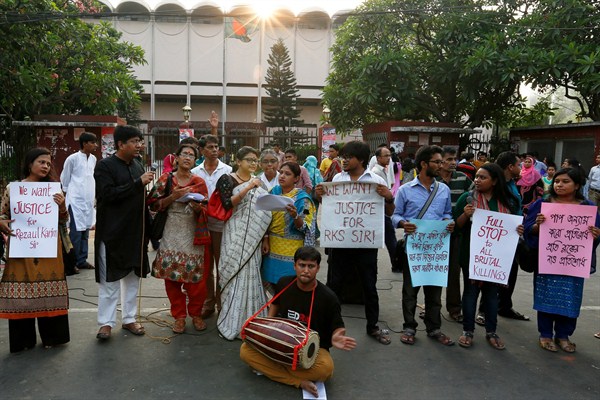A series of gruesome attacks on bloggers in Bangladesh has shocked the country and the world. But they are only one element in a years-long cycle of mounting violence. Large-scale political repression has created a climate of injustice that extremist groups have easily exploited in their war against secularists and liberal thinkers.
Unfortunately, political violence is nothing new in Bangladesh. Much of it is the result of the unrelenting, intense rivalry between the country’s two major parties, the governing Awami League of Prime Minister Sheikh Hasina and the opposition Bangladesh Nationalist Party (BNP) of former Prime Minister Khaleda Zia and its Islamist ally Jamaat-e-Islami. But the violence has worsened as repression peaks. The government, in its attempt to silence political dissent, has politicized and dangerously overstretched the country’s law enforcement institutions. Bangladesh’s prisons are overflowing with political opponents and activists, while extremists, thriving in an atmosphere of impunity, intimidate ordinary citizens.
Successive governments have used state machinery to suppress the opposition, which in turn mobilized violent party workers to undermine the government. This political conflict between the Awami League and the BNP has been aggravated by brutal government actions against political opponents and critics, including enforced disappearances, torture and extra-judicial killings.

